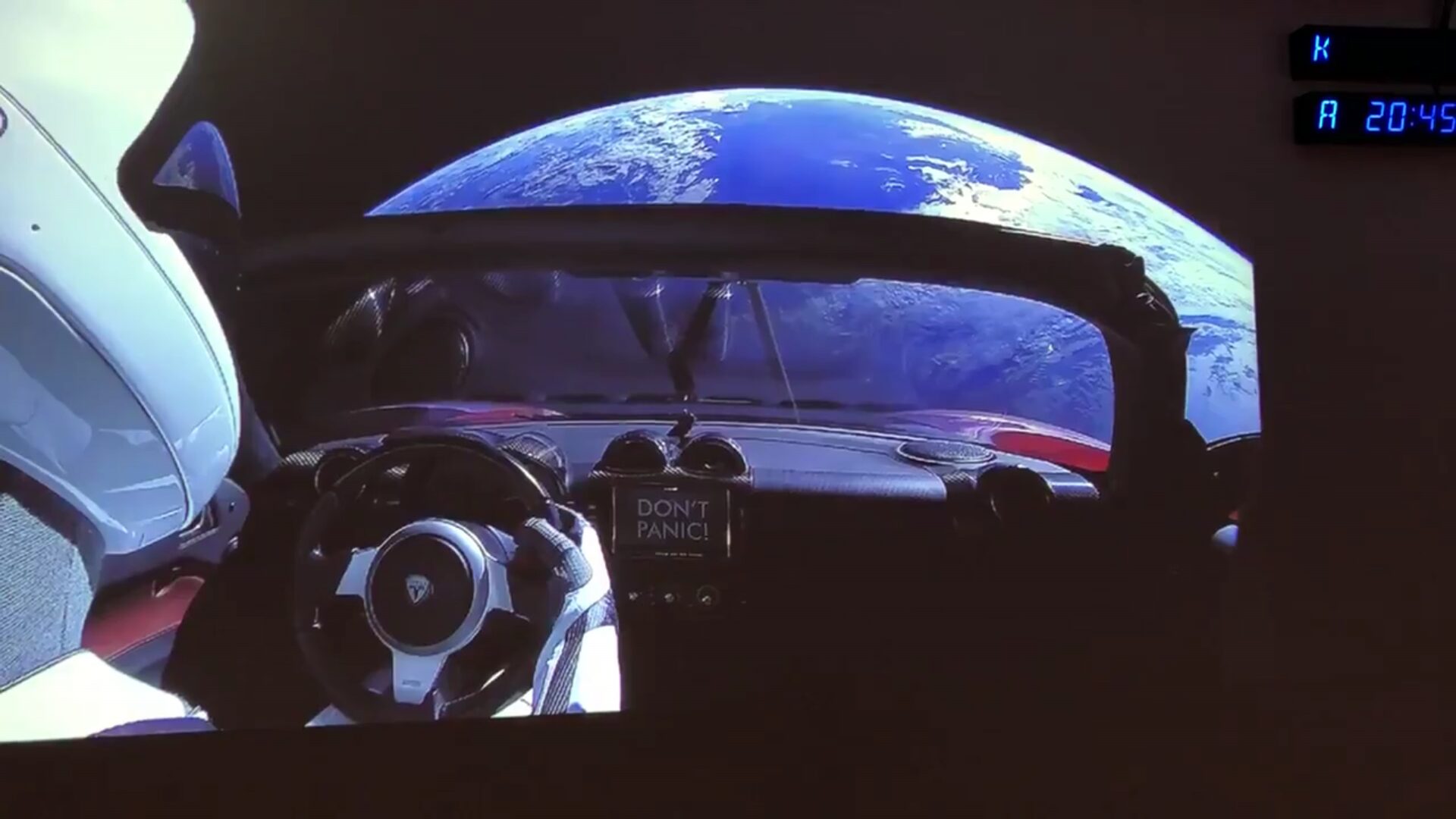All I know is my gut says maybe.
The SpaceX Falcon Heavy launch was a pretty big deal. And since it was more or less a test, its payload was a bit eccentric: Elon Musk’s own Tesla Roadster, with a crash test dummy in a SpaceX space suit in the driver’s seat. So some might wonder if the car would still run if they brought the rocket back.
The answer is maybe… if they brought it right back, right now.
View from SpaceX Launch Control. Apparently, there is a car in orbit around Earth. pic.twitter.com/QljN2VnL1O
— Elon Musk (@elonmusk) February 6, 2018
Upper stage restart nominal, apogee raised to 7000 km. Will spend 5 hours getting zapped in Van Allen belts & then attempt final burn for Mars.
— Elon Musk (@elonmusk) February 6, 2018
According to the investigation by Gizmodo, chances are that it won’t likely survive a terribly long time in space. Since the car is not coming back at all, it’s going to be subjected to a number of different phenomena. All of which will probably render the car non-functional.
I would guess a few parts would need to be replaced if the car they launched was exactly like the ones they sell. Anything made of rubber would probably freeze and/or crack when exposed to the vacuum of space so I would think those pieces would need swapping out…
– Astrophysicist Summer Ash
According to Scott Bolton, principal investigator of the Juno Mission, it would eventually get hit by high-energy particles, likely ruining the delicate computer systems. Not to mention thermal cycling causing all kinds of damage to the car. Or micrometorites colliding with it, causing damage. Basically, its fate is sealed, and this is the modern equivalent of a Viking funeral. Or the end of Space Cowboys, either way.
Elon Musk isn’t too broken up about it, though. In a press conference reported by Space.com, he said:
I’m not worried about the car […] It’ll be fine — least of my concerns, I hope.

